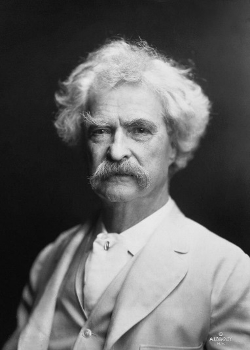Tristan Daws, English and Drama teacher at WHS, introduces the ‘New Views’ scriptwriting club and considers the value of writing for the stage.
New Views is a playwriting initiative run by the National Theatre. Over the course of the year, Year 11-13 students at WHS work towards writing their own one-act plays, meeting each week to read each other’s scenes, posing questions and sharing ideas as they refine their stories. Their ultimate goal is to enter a national competition, with the winning play staged at the Dorfman Theatre by a company of professional actors.
As the plays take shape, the National Theatre poses three questions to the students:
- Why me? Or why should I be the one to tell this particular story?
- Why now? What is it about this story that demands to be told now?
- Why theatre? Why does this story belong on the stage, rather than in a short story or a TV sitcom?At the close of last term, prior to lockdown and school closures, I sat down with a group of WHS New Views writers to discuss these questions with them.
Why me?
 When a playwright is asked ‘what makes me qualified to write this play?’ the immediate assumption can be that our work should be in some ways autobiographical in order to be ‘authentic’ and ‘truthful’. One of the most oft-quoted aphorisms in creative writing is a comment attributed to Mark Twain, “Write what you know.”
When a playwright is asked ‘what makes me qualified to write this play?’ the immediate assumption can be that our work should be in some ways autobiographical in order to be ‘authentic’ and ‘truthful’. One of the most oft-quoted aphorisms in creative writing is a comment attributed to Mark Twain, “Write what you know.”Nathan Englander[1] remarks that this is “the most misunderstood, most mis-taught, most misinterpreted piece of advice that there is” and a host of great writers have lined up to support or to rebut this rule.
Toni Morrison’s[2] pithy response is “you don’t know anything”, while Ursula Le Guin[3] suggests “I think it’s a very good rule and have always obeyed it. I write about imaginary countries, alien societies on other planets, dragons, wizards, the Napa Valley in 22002. I know these things… All this rule needs is a good definition of ‘know.’”
The pupils have an equally clear stance when I first mention this to them: “Don’t write what you know – that’s boring!” one of them comments. “Write what you want to get to know” another adds.
One of the aims of New Views is to sharpen students’ approach to research, and it is through this process that the group are able to explore beyond what they know. By connecting empathetically with characters living far from their own experience, the pupils have found ways to share human stories that feel both personal and alien to them. In doing so, they have been surprised by what they have learned about themselves. Ultimately, the group conclude that there is no definitive maxim to live by in their writing: “making a play, you’re constructing this whole world from your own ideas, and a lot of the time that world is going to be informed by your existence and your experience. It is informed by so much personal stuff, even if the story isn’t personal to you, and it’s such a good way of interrogating those ideas.” Perhaps, as Raymond Carver[4] puts it, “a little autobiography and a lot of imagination are best.”
Why now?
When New Views was established in 2011, its stated aim[5] was “to stimulate debate and discussion about key and challenging issues for contemporary society… to invite young people to explore how plays can challenge preconceptions and motivate more active participation in our communities.” The ‘nowness’ of the stories told in these plays was very much the priority, and the winning play that year was not performed at the National Theatre, but to an audience of parliamentarians and public at Westminster Hall.
Since then, the political focus has relaxed, with the winning play moving to the Dorfman Theatre, and the pupils clearly revel in the lack of perceived constraints on their subject matter. “We’re so consumed with all the work we do that it’s just overwhelming. It’s nice to just have a place where you can explore things that don’t necessarily have to have a meaning and have to have a ‘why now?’”
Perhaps the most meaningful ‘why now’ for the writers is not about why their plays are socially topical, but rather why they want to tell these stories at this time in their lives, when their writing is an escape from the structure of exam classes. One Year 11 participant appreciated the creative focus away from her GCSEs, while enjoying the chance to bond with other year groups; others valued being able to achieve something tangible in a fixed time period during the two years of their A Level course, particularly those that had given up ‘creative’ subjects after GCSE. Nowhere is this creative freedom more evident than in the range of stories the pupils have chosen to tell, from a metaphysical courtroom battle between God and Death to a farce about a group of office workers in pursuit of a missing Les Dennis mug.

Why theatre?
One of the greatest challenges for the group has been to conceptualise works of drama that are distinctly theatrical, rather than cinematic. As one immediately responded when I first mentioned the three questions to them, “none of us ever know the answers to those! You ask me ‘why theatre’ and I’m like ‘I know it should be a screenplay, ok?’” Few of the group had considered writing a play before our first session together, even though many had entered short story and poetry competitions. “Writing a script wasn’t something that I thought you just did. I never thought about actually trying so it was new and exciting.”
After initial drafts of their plays, often made up of several short scenes in myriad locations, as might be expected from a screen drama, the writers have learned to embrace dialogue, exploring human interaction in more depth. By envisaging a performance in three dimensions, the group think much more about physicalisation, pauses, and how characters can communicate in non-verbal ways. The most rewarding part of this process for them has been to experience their work being read by others in our weekly gatherings, and they speak animatedly about the experience of “having things performed by another human being, interpreting your words and making them their own.”
At its core, what the pupils are responding to is the shared experience of the theatre. By making a connection with the visceral, physical aspect of watching a play, they are excited by the potential to reach their audience directly, “because it is live. You can’t pause a play, go on your phone for 15 minutes and then come back. You’re in that emotion and everyone is in the same room, feeling the same thing.” In these times of social isolation, it is easy to see why the most compelling response to ‘why theatre?’ is that communal human element, and the shared experience that theatre brings.
References:
1. Gots, J (2012), “Write what you know” – the most misunderstood piece of good advice, ever. Big Think, Available at: https://bigthink.com/think-tank/write-what-you-know-nil-the-most-misunderstood-piece-of-good-advice-ever
2. Sutton, R (2014), Write, Erase, Do It Over, National Endowment for the Arts, Available at: https://www.arts.gov/NEARTS/2014v4-art-failure-importance-risk-and-experimentation/toni-morrison
3. Le Guin, U (2003), When to bend, when to break, Los Angeles Times, Available at: https://www.latimes.com/archives/la-xpm-2003-jan-05-bk-leguin5-story.html
4. Buzbee, L & Simpson, M (1983), Raymond Carver, The Art of Fiction No. 76, The Paris Review, Available at: https://www.theparisreview.org/interviews/3059/the-art-of-fiction-no-76-raymond-carver
5. Londesborough, M (2011), New Views, New Voices at the National, The Guardian, Available at: https://www.theguardian.com/culture-professionals-network/culture-professionals-blog/2011/nov/07/national-theatre-new-views-programme

